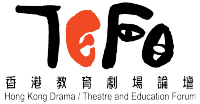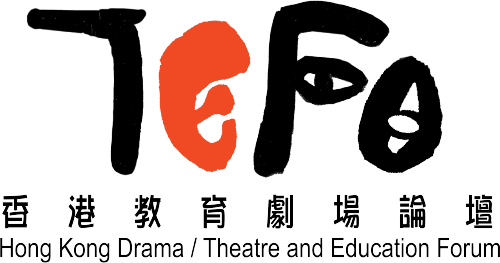A Multi-case Study of Chinese Language Classrooms with Drama as Pedagogy: A Dialogic Perspective
This multiple ethnographic case studies aims to investigate the critical literacy which emerged and emanated in the Chinese classrooms using drama as pedagogy. Drawing on the perspectives of Critical theories, Bakhtin Mikhail’s dialogism, and also the literatures on critical literacy, this study argues that there is disparity of statuses of languages, knowledges, cultures and peoples within the Chinese language classrooms.
Drama as method : recontextualizing project learning for HK secondary schools
This doctoral study is grounded in the work of cultural studies and its concern for pedagogy and education. The study investigated a local pedagogical issue— Independent Enquiry Study (IES)—a specific form of social inquiry in the core subject Liberal Studies (LS) in Hong Kong senior secondary schools. It took a designated IES classroom as the point of intervention and as the basis for exploring transformed pedagogical practices in Hong Kong secondary school education.
The ‘Unthinking Thinker’: the Reflexive Teacher for Integrated Drama Education
The whole purpose of writing a PhD thesis on drama education in Hong Kong is to develop relevant academic discourse for promoting the introduction of drama into the formal school curriculum with the necessary teacher development methods.
Teaching and learning through drama: in search of a dialogic classroom in Hong Kong
The objective of this dissertation is, to raise awareness concerning the importance of “talking to learn”, which is neglected by teachers in Hong Kong. Reflecting on her past schooling experience, the author attempts to explore the fundamental relationship between talking and learning. Talking is the most effective mode that can be used to engage students in their learning process. The talking space provided for students by teachers affects the way students view their role in the classroom. In order to foster students learning to learn, the author argues that the traditional one-way teaching classroom should be replaced by a dialogic classroom where students’ voices are valued. Drama, in its dialogic nature, has a great potential to create this kind of classroom. Through the literature reviews and the author’s experience in this year, she demonstrates that drama as a powerful teaching and learning medium could be of help to students learning to be active learners. Based on her inquiry, she wants to give vigorous support to the introduction of drama, as an alternative pedagogy, in Hong Kong schools. She believes that drama is more than an extra-curricular activity; it can help to achieve the aims of the current Hong Kong Education Reform which emphasizes teaching students “learning how to learn”.
Changing Practice?− Exploring the potential contribution of applied theatre training to capacity building for NGO workers in China
Does applied theatre training contribute to capacity building for NGO workers in China? If so, how, and what factors might support or inhibit its effective application? This study adopts a blend of reflective practitioner research and action research as methodology centring on an applied theatre training workshop with a group of Chinese NGO workers. It draws from adult education literature in the area of experiential theories of adult learning and pedagogy, and the growing literature related to applied theatre and drama education. Both of these literatures raise theoretical issues concerning holistic learning and mindful and reflective practice, and a wide range of relevant categorisations of learning paradigms, fields and modes is canvassed.
Re-considering affects in applied theatre: from the perspective of Michael Chekhov’s psycho-physical acting approaches
Thompson (2012) urges applied theatre practitioners to pay more attention to affective properties in applied theatre. This dissertation uses Chekhov’s (1991) psychophysical acting theories, as an artistic and acting approach, to examine how body/mind interaction stimulates affective properties in an applied theatre setting. Autoethnography is applied as the methodology for contributing the interpretation of affect from a subjective angle. I found that psycho-physical acting provides a new angle to enable understanding of how body and mind affect each other and produce the effect of self-understanding and the development of well-being. This dissertation suggests that understanding body and mind interaction could help practitioners to discover more potential benefits in applied theatre.




